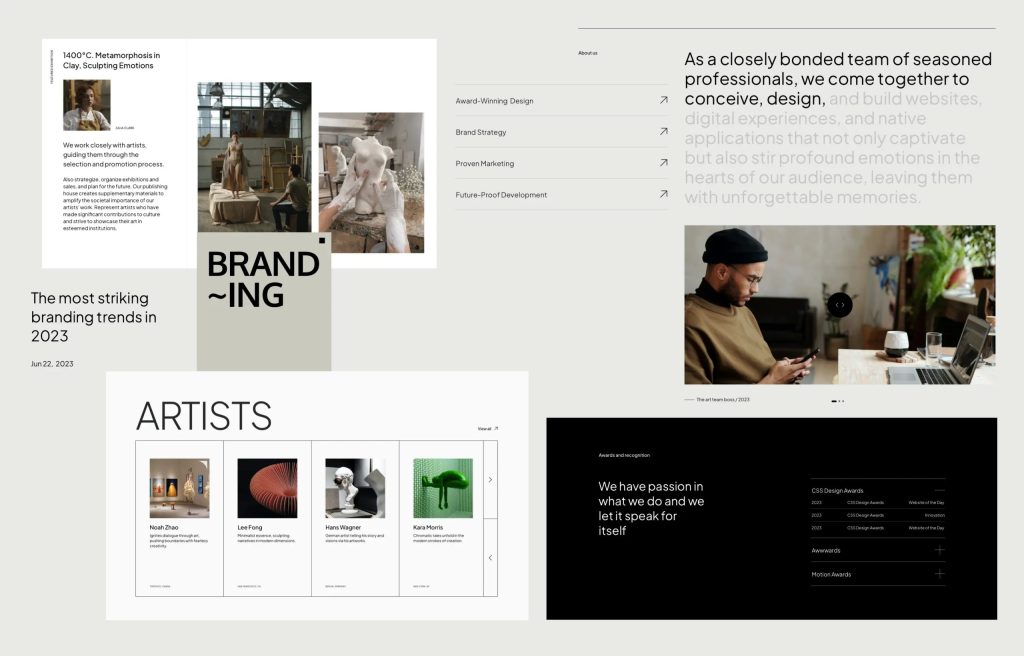As we step into 2024, the realm of Artificial Intelligence (AI) is bustling with groundbreaking advancements, especially with the release of new large models, innovative tools, and technologies designed to tackle specific challenges across various industries. From Google’s advancements with the Gemini 1.5 Pro to numerous emerging AI products tailored for enterprise and healthcare, the landscape is evolving rapidly.
Google’s Gemini 1.5 Pro has emerged as one of the standout AI large models of 2024, building upon the foundation laid by its predecessor. With its multimodal capabilities, Gemini 1.5 Pro is engineered to seamlessly process text, images, and audio, offering businesses and developers a versatile tool to create richer, more interactive experiences. Its extended context understanding allows it to maintain coherence and relevance over longer conversations or documents, making it particularly useful for applications in customer service, content creation, and educational tools. This model is designed to reduce biases and enhance clarity, thereby fostering trust in AI-generated content. The implications for industries such as healthcare are substantial, with potential applications in enhancing patient interactions through AI-driven decision support systems (Source: Google AI Blog).
Moreover, the model’s integration with advanced APIs offers businesses a robust framework to build custom solutions. The Gemini 1.5 Pro’s sophisticated natural language understanding capabilities make it suitable for tasks like sentiment analysis and therapeutic conversation simulations. This is particularly crucial in mental health applications, where nuanced communication is key (Source: TechCrunch).
The year 2024 has also seen the launch of various tools and APIs that integrate advanced AI technology for diverse tasks across industries. Notable among these is OpenAI’s API, which continues to evolve and enhance functionalities aimed at enterprise applications and business automation. By allowing developers to easily embed powerful AI capabilities into their applications, the OpenAI API facilitates more efficient operations, improved customer experiences, and better analytics. The adaptability of this API empowers businesses in virtually every sector, from retail to finance, to optimize their processes and tap into predictive analytics for more informed decision-making (Source: OpenAI Blog).
With the sharp growing demands for energy sustainability, AI is making strides in energy management, providing specialized solutions to monitor consumption and optimize resources. The latest advancement in AI for energy management involves integration with IoT devices to analyze usage patterns and propose efficiency improvements. This AI-driven energy optimization technology can lead to substantial cost reductions and carbon footprint minimization for corporations and municipalities alike. Companies like Siemens and Schneider Electric are leading this charge by leveraging AI algorithms that identify and highlight inefficiencies and forecast needs in real-time, ensuring a proactive approach to energy consumption (Source: Siemens Smart Infrastructure).
In addition to general-purpose applications, emerging AI technologies are increasingly being developed to meet specialized use cases. The focus on creating more reliable and debiased large language models (LLMs) has gained momentum. These models aim to minimize the potential for biased outputs, which is a critical concern in sensitivity-driven fields like law and healthcare. Recent advancements have led to the introduction of structured methodologies that ensure models are trained on diverse datasets, reducing the likelihood of perpetuating harmful stereotypes or misinformation (Source: MIT Technology Review).
For the enterprise sector, innovative products emerge with capabilities designed to streamline operations and enhance security. Cybersecurity tools, powered by sophisticated AI algorithms, are redefining responses to threats through pattern recognition and anomaly detection. Products like Darktrace’s Cyber AI Platform employ machine learning to adaptively learn the behavior of a network, enabling it to detect and neutralize threats in real time. This represents a significant shift in how organizations safeguard their data while ensuring the continuity of operations (Source: Darktrace).
The healthcare industry is also reaping the benefits of advanced AI tools, with developments in AI-driven decision support systems. These systems assist medical professionals by analyzing vast amounts of medical data to provide recommendations, predict patient outcomes, and enhance diagnosis accuracy. For instance, companies like IBM Watson Health are developing AI models that can comb through historical patient data to identify treatment pathways that have yielded the best results, ultimately supporting clinicians in making data-informed decisions (Source: IBM Watson Health).
In the education sector, AI continues to revolutionize teaching and learning processes. Platforms incorporating cognitive intelligence systems are being employed to personalize learning experiences, adapt curricula to fit individual student needs, and offer robust analytics for teachers. This development allows educators to focus on fostering engagement without being bogged down by administrative burdens. For example, Duolingo’s recently enhanced AI capabilities not only assess student performance but also intelligently curate lesson plans in real-time, adapting the challenge level according to each user’s progress (Source: Duolingo Blog).
The creative industries have also stepped into the AI spotlight with innovative tools facilitating content creation. For instance, Adobe’s Firefly harnesses AI to assist artists in generating graphics and video content more efficiently. This collaborative approach enables artists to focus on their creative process while AI takes on time-consuming tasks such as color correction or layout suggestions. The result is a faster workflow that still allows for high-quality output, redefining the possibilities for creative professionals (Source: Adobe Blog).
Recognizing the importance of ethical AI practices, many companies are also prioritizing transparency and user control over their data. As AI tool adoption expands, it is critical that organizations address potential privacy concerns and implement measures to uphold ethical standards. Initiatives focusing on AI ethics are being established concurrently with advancements to ensure that the transition to automated and AI-enhanced workflows does not compromise user trust (Source: World Economic Forum).
As we move further into 2024, the impact of these advancements is becoming more apparent across various sectors. The fusion of AI-driven decision support, energy management solutions, and enhanced cognitive intelligence systems is reshaping industries by improving efficiencies, fostering innovation, and democratizing access to information. As organizations harness the power of sophisticated AI tools, we can expect a robust transformation that will continue to redefine the boundaries of technology and human capability.
In conclusion, 2024 is poised to be a banner year for the advancement of AI technologies, with significant strides in large models like Google’s Gemini 1.5 Pro, the emergence of AI-driven APIs for enterprise application, and specialized developments aimed at addressing biases in LLMs. Collectively, these innovations are set to influence industries from healthcare and business automation to education and cybersecurity. With the pace of technological change accelerating, the future holds exciting possibilities for the integration of AI into our everyday lives.


























